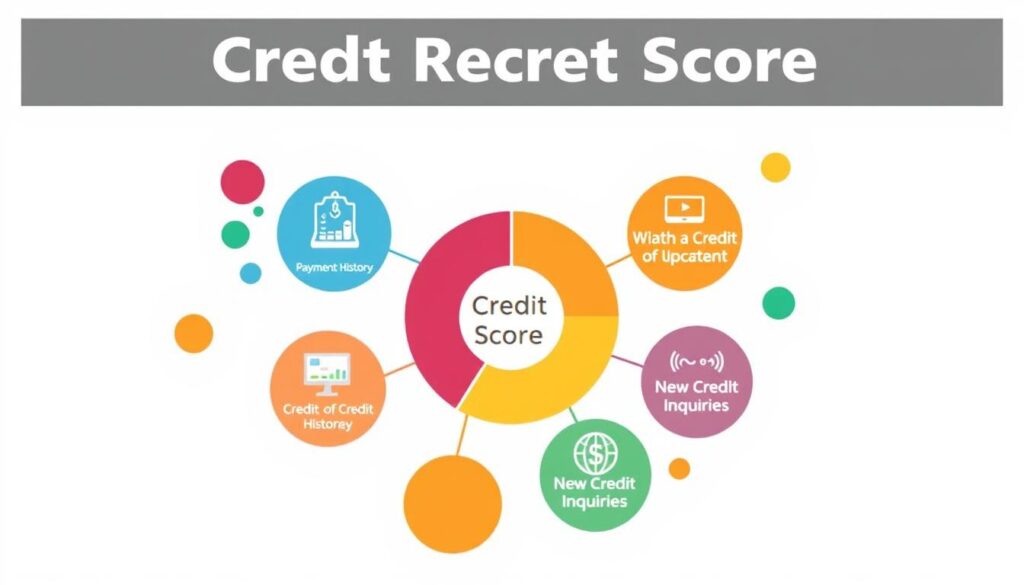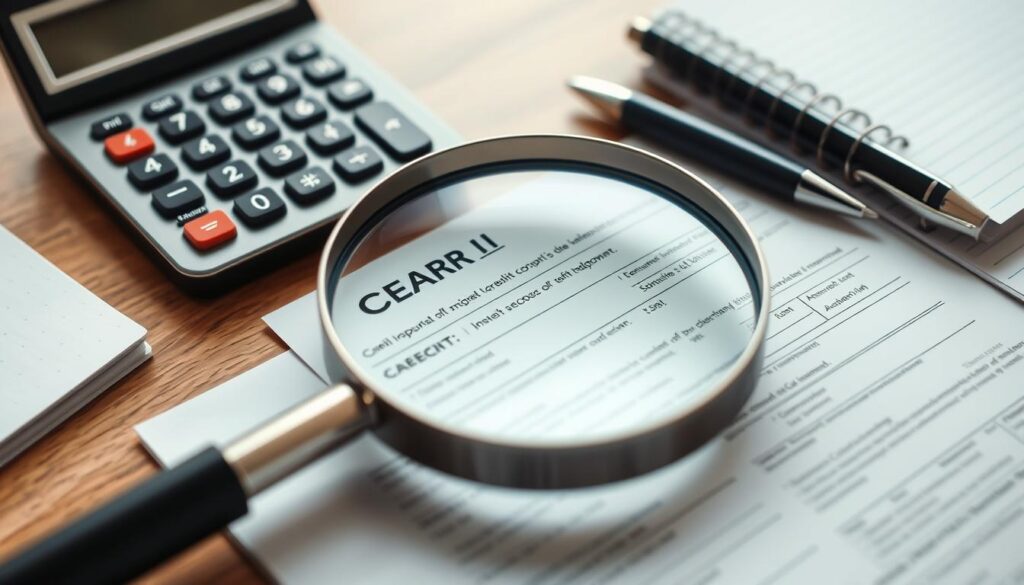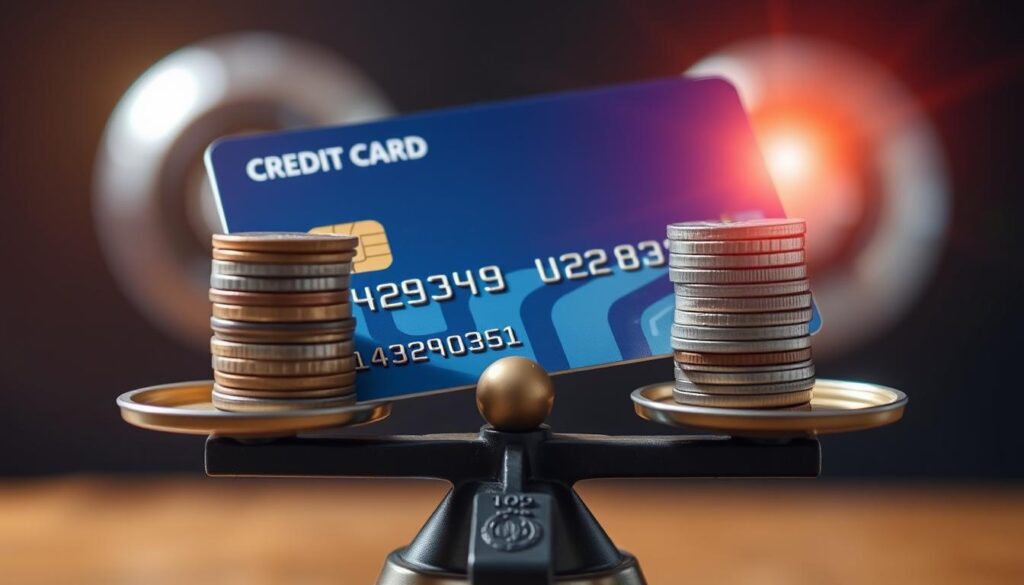Struggling with a poor credit score? This guide offers quick, effective strategies to boost your credit fast. You’ll learn proven techniques to repair your credit and improve your financial life.
We’ll cover disputing credit report errors and reducing credit utilization. These methods can help you achieve a faster credit repair timeline.
Key Takeaways
- Discover the fastest ways to repair your credit and boost your score
- Learn how to identify and dispute inaccuracies on your credit report
- Understand the impact of credit utilization on your score and how to reduce it
- Explore the benefits and drawbacks of using professional credit repair services
- Discover strategies to build a positive credit history and maintain a healthy credit profile
Understanding Credit Scores and Their Significance
Your credit score shows how trustworthy you are with money. This number, from 300 to 850, is important for lenders, landlords, and employers. It helps them judge your financial history and reliability.
The Impact of Credit Scores
A good credit score can help you get better interest rates and lower insurance costs. It can even open up job opportunities. A poor score makes it hard to get loans, credit cards, or rent apartments.
Understanding your credit scores is key to taking charge of your money future.
Factors Affecting Your Credit Score
Your credit score depends on several things:
- Payment history: This shows if you pay your debts on time. It’s the biggest part of your credit score.
- Credit utilization: This is how much credit you use compared to what’s available. Keeping this low helps your credit score impact.
- Credit mix: Having different types of credit shows you can handle various debts. This is good for your score.
- Length of credit history: A longer history gives lenders more info. This can boost your factors affecting credit score.
Knowing these factors affecting credit score helps you improve your credit profile. This can unlock many financial chances for you.

The quickest credit repair Strategies
Improving your credit score quickly is possible with strategic approaches. You can speed up your credit repair journey and see results faster. Let’s explore the quickest strategies to get your finances back on track.
- Enroll in Credit Monitoring Services: Sign up for a reliable credit monitoring service. It will alert you to suspicious activity or errors that need your attention.
- Negotiate with Creditors: Reach out to your creditors and negotiate payment terms or settlements. Many creditors are willing to work with you to resolve delinquent accounts.
- Prioritize High-Impact Debts: Pay off debts that greatly affect your credit score. Focus on delinquent accounts or maxed-out credit cards for faster improvements.
- Dispute Inaccuracies: Review your credit report regularly. Dispute any errors or inaccuracies you find to speed up your credit repair progress.
Use these quickest credit repair strategies, fast credit repair methods, and rapid credit improvement techniques to control your credit health. You can see significant improvements in a shorter timeframe.
Consistency and diligence are key to achieving long-lasting credit success. Stay committed to your credit repair journey for the best results.
“The secret to getting ahead is getting started.” – Mark Twain

Disputing Errors on Your Credit Report
Credit report inaccuracies can hurt your credit score. They limit your financial options and lower your creditworthiness. You can fight these errors and fix your credit profile.
Mistakes like missing payments or wrong account info can harm your credit. But you have the power to dispute these issues. This can help restore your credit report’s accuracy.
Identifying Inaccuracies
Start by reviewing your credit reports from Experian, Equifax, and TransUnion. Look for any errors in your reports. These might include:
- Accounts that do not belong to you
- Incorrect payment histories or account statuses
- Erroneous personal information, like your name or address
- Outdated or duplicate entries
Steps to File a Dispute
After finding errors, you can file a dispute with the credit bureaus. Here’s how to do it:
- Get a copy of your credit report from each bureau. Highlight the errors you find.
- Collect proof that shows the mistakes. This could include payment records or letters from creditors.
- Contact the credit bureaus directly. You can do this online, by mail, or by phone.
- Explain the errors in detail. Send your supporting documents with your dispute.
- Keep track of your dispute’s progress. Follow up if needed to make sure errors are fixed.
Disputing credit report errors can boost your credit score. It’s one of the fastest ways to improve your creditworthiness. This can lead to better financial opportunities for you.

Reducing Credit Utilization Ratio
Your credit utilization ratio greatly impacts your credit score. It’s the amount of credit you use compared to your limit. Lowering this ratio can quickly boost your credit score.
Here are strategies to reduce your credit utilization and improve your score:
- Increase Your Credit Limits: Ask your card issuers for higher limits. This can instantly lower your utilization ratio without paying down balances.
- Pay Down Balances: Focus on paying off high-balance cards first. Try to keep your card balances below 30% of your limits.
- Limit New Credit Applications: Avoid applying for new cards or loans. Each application can temporarily lower your score and increase utilization.
- Utilize Balance Transfers: Move high-interest balances to a card with lower rates. This can help you pay down balances more effectively.
Using these strategies can help reduce your credit utilization ratio. This will improve your credit score and lead to better financial opportunities.

“Lowering your credit utilization ratio is one of the most effective ways to boost your credit score quickly.”
Prioritizing High-Impact Debts
Focusing on high-impact debts can quickly boost your credit score. Delinquent accounts can heavily drag down your creditworthiness. It’s crucial to target them in your debt management plan.
Targeting Delinquent Accounts
Delinquent accounts are one of the most damaging factors affecting your credit score. Addressing these high-impact debts first can rapidly improve your credit profile. This approach lays the groundwork for long-term financial success.
Here are some steps to target delinquent accounts:
- Conduct a thorough review of your credit report to pinpoint any delinquent accounts.
- Prioritize these accounts based on the severity of delinquency, with the oldest or most severely past-due items being the top priority.
- Develop a targeted plan to bring these accounts current, whether through negotiation, payment plans, or settlement agreements.
- Continuously monitor your credit report to ensure delinquent accounts remain in good standing and do not recur.
By prioritizing high-impact debts and targeting delinquent accounts, you can quickly repair your credit. This approach sets the stage for improved financial health in the long run.
The key to successful credit repair is to address the most damaging factors first, and delinquent accounts are undoubtedly one of the biggest obstacles to overcome.
Removing Negative Items Through Goodwill Letters
Negative items on your credit report can hurt your credit score. Goodwill letters are a powerful tool to remove these blemishes. They help you take control of your credit report.
Successful goodwill letters come from understanding the creditor’s view. Acknowledge your mistakes and show commitment to good credit management. This appeals to the creditor’s sense of goodwill.
Crafting Effective Goodwill Letters
To write a good goodwill letter, use the right tone. Make a clear case for removing the negative item. Here are some tips:
- Personalize the letter: Address the creditor by name and use a friendly, respectful tone throughout the letter.
- Acknowledge the mistake: Take responsibility for the negative item and express your regret for the inconvenience it has caused.
- Explain the circumstances: Provide context for the negative item, such as a temporary financial hardship or a one-time oversight.
- Demonstrate your commitment: Highlight your efforts to improve your credit management and maintain a positive credit history going forward.
- Politely request removal: Respectfully ask the creditor to consider removing the negative item from your credit report as a goodwill gesture.
These steps help you craft a persuasive goodwill letter. It appeals to the creditor’s empathy and fairness. This increases your chances of successful credit report remediation.
The Power of Persistence
Not all goodwill letter requests succeed on the first try. It may take multiple attempts to convince the creditor. Don’t get discouraged if your first request is denied.
Keep trying with follow-up letters or more documentation. You can also reach out to customer service. Persistence is key in this process.
Using goodwill letters to remove negative items can improve your credit score. It’s an effective way to control your financial future. With effort and understanding, you can create a brighter credit outlook.
Exploring Credit Repair Services
Professional credit repair assistance can be valuable for those who prefer a hands-off approach. Let’s explore the pros and cons of credit repair services. This will help you decide if it’s right for your credit repair journey.
Pros of Professional Credit Repair Assistance
- Expertise and Experience: Credit repair companies employ specialists who understand credit reporting and legal dispute processes.
- Time-Saving: Professionals handle research, documentation, and communication with credit bureaus for you.
- Improved Success Rates: Studies show that credit repair services often lead to faster and better credit score improvements.
Cons of Professional Credit Repair Assistance
- Fees: Credit repair services usually charge monthly fees, which can add up over time.
- Potential for Unethical Practices: While many companies are reputable, some have engaged in scams or unethical practices.
- Reliance on the Company: Using a service means trusting them with your personal information and credit repair efforts.
The choice between credit repair services and DIY methods depends on your preferences and budget. Consider your comfort level with the credit repair process.
Weigh the pros and cons of credit repair services carefully. This will help you find the best approach for your quickest credit repair journey.
Building Positive Credit History
Your credit history impacts your financial well-being. It shows how you’ve managed credit accounts and affects your credit score. A strong credit history can lead to better credit access and lower interest rates.
Becoming an authorized user on someone’s credit card is a great way to build credit. You can benefit from their good credit management. Another option is opening a secured credit card.
A secured card needs a refundable deposit. It reports your payments to credit bureaus, helping you establish credit.
- Regularly review your credit report and dispute any errors or inaccuracies you find.
- Avoid closing unused credit cards, as this can negatively impact your credit utilization ratio.
- Make all your payments on time, even for small bills, as payment history is a significant factor in your credit score.
- Consider setting up automatic payments or payment reminders to ensure you never miss a due date.
By using these strategies, you can build a solid credit foundation. Consistent credit management will help secure your financial future.
“Establishing a positive credit history is like planting a tree – it takes time, but the rewards are worth it in the long run.”
| Strategies for Building Positive Credit History | Benefits |
|---|---|
| Become an authorized user on someone else’s credit card | Benefit from the account holder’s good credit management |
| Open a secured credit card | Establish credit by making on-time payments |
| Regularly review and dispute credit report errors | Maintain accuracy and improve credit profile |
| Avoid closing unused credit cards | Maintain a favorable credit utilization ratio |
| Make all payments on time | Strengthen payment history, a key factor in credit scoring |
Conclusion
This guide offers proven strategies for quick credit repair. By using these methods, you can boost your score and improve your finances. Take control of your credit and unlock new financial opportunities.
Quick credit repair requires diligence, persistence, and strategy. Start today and watch your credit score improve. With the right approach, you can regain financial freedom.
Take the first step to rebuild your credit now. Use these insights to secure a brighter financial future. Your future self will appreciate your efforts to improve your financial well-being.

